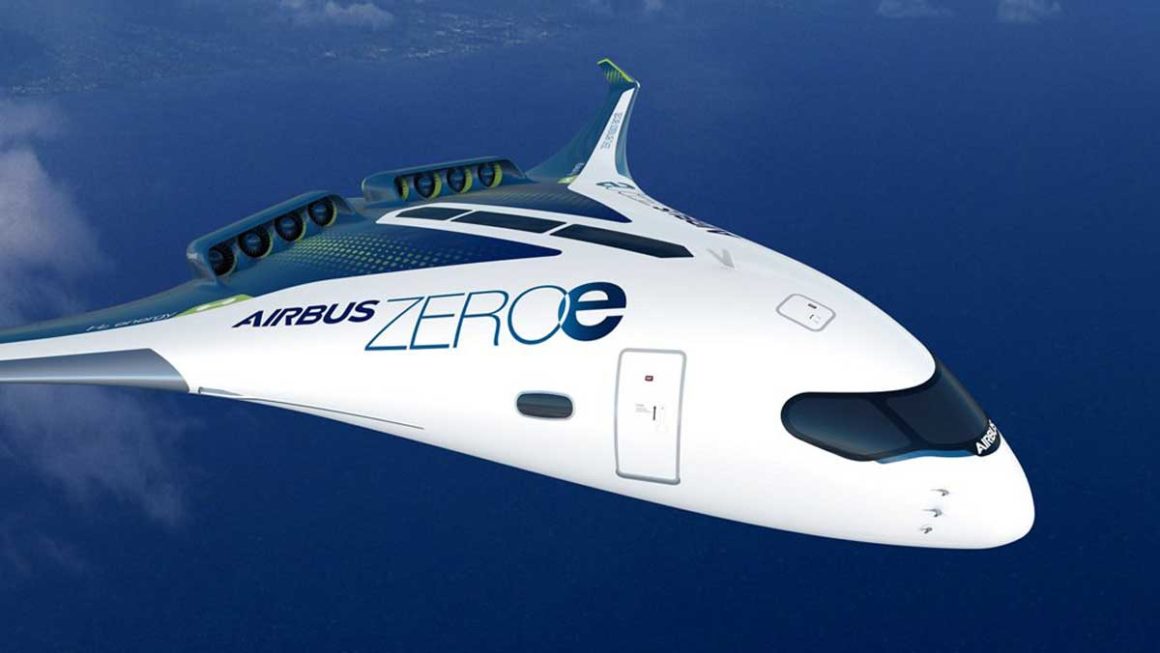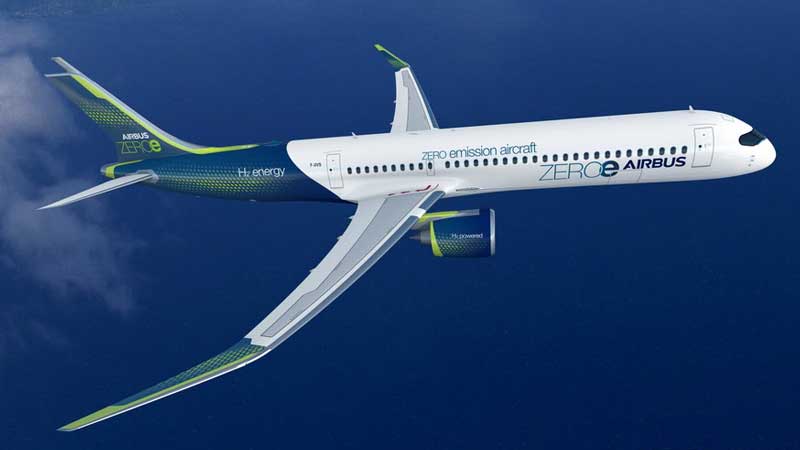European aerospace giant Airbus confirmed reports that it would delay its plans to develop a hydrogen-powered aircraft by 2035 by as much as five to 10 years due to slower-than-expected advances in the technology.
Airbus reportedly informed its employees on February 6 that it would push back the development timeframe of its ZEROe program to as far afield as 2040 or 2045.
This news was subsequently shared by French trade union Force Ouvrière, which also revealed that the budget allocated to Airbus’s ZEROe program would also be cut by a quarter. Plans to test hydrogen fuel-cell propulsion using an A380 as a test bed were also shelved, according to the trade union.
Airbus subsequently made the information public in an email to journalists.
“Hydrogen has the potential to be a transformative energy source for aviation,” Airbus said. “However, we recognise that developing a hydrogen ecosystem – including infrastructure, production, distribution, and regulatory frameworks – is a huge challenge requiring global collaboration and investment.”
Originally announced in 2020 alongside three concepts that all used “hydrogen as a primary power source”, the ZEROe program was a huge boost to the burgeoning hydrogen-powered flight sector.
The ZEROe program had envisioned a turboprop aircraft capable of seating 100, as well as two mid-sized aircraft capable of seating 200, including a “flying wing” concept.

“This is a historic moment for the commercial aviation sector as a whole and we intend to play a leading role in the most important transition this industry has ever seen,” Airbus CEO Guillaume Faury said at the time.
“The concepts we unveil today offer the world a glimpse of our ambition to drive a bold vision for the future of zero-emission flight.
“I strongly believe that the use of hydrogen – both in synthetic fuels and as a primary power source for commercial aircraft – has the potential to significantly reduce aviation’s climate impact.”
However, Airbus has reportedly found the going tough in developing the necessary technology to meet a 2035 target.
At the same time, others in the aviation industry have doubled down on Sustainable Aviation Fuels (SAF) which can be produced from green hydrogen and can be more easily used with existing aircraft and infrastructure.
Joshua S. Hill is a Melbourne-based journalist who has been writing about climate change, clean technology, and electric vehicles for over 15 years. He has been reporting on electric vehicles and clean technologies for Renew Economy and The Driven since 2012. His preferred mode of transport is his feet.

